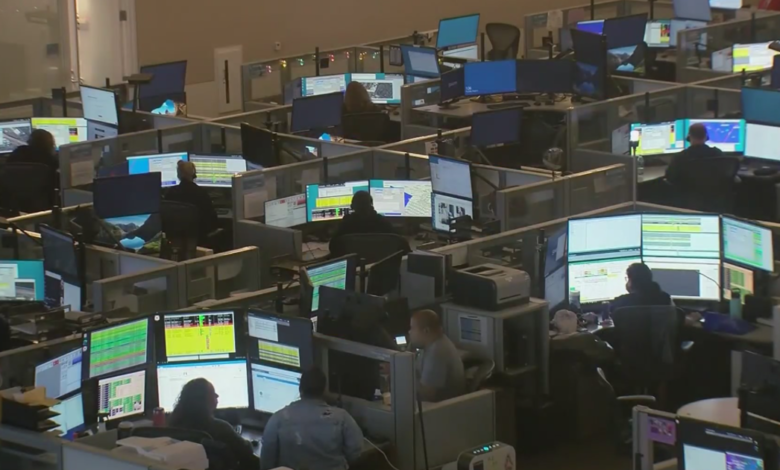
You’ve probably sat down at your computer and thought, “Great, a software update, let’s see what this brings.” That was how things went with the CrowdStrike update, which brought headaches and howls all over the country.
“It’s pretty inconvenient right now honestly,” said Sal Ramirez as he waited outside a closed DMV office in Denver’s Five Points. “Been here about three hours. Maybe another hour I might have to head back to work and help them out over there.”
CBS
It was no doubt a bad day to work a counter for an airline company or an intake nurse at a medical facility, or… all because of a software upgrade.
“I myself was stuck at the airport this morning,” said Dr. Sasha Breger Bush, an international political economist who studies supply and commodity chains at the School of Public Affairs at CU Denver. “Oddly enough, I started thinking about peanut butter as I started to realize what was going on.”
She was thinking about a shortage that happened after a contamination scare. It was then realized that very few peanut butter manufacturing facilities existed, and when one shut down, it caused shortages.
“And it turned out that only four plants at the time were processing all of the country’s peanut butter, so a failure in this one part of the supply chain had huge ripples across the U.S. and across the economy and society more generally,” said Breger Bush.
It is a way of explaining the commodity of software. When many companies use the cybersecurity firm CrowdStrike, which admits it was a bad software update that caused the trouble, they share its shortcomings, akin to a peanut butter factory shutting down.
CBS
“You kind of get a sense of how vulnerable and fragile some of our supply chains are when you think about episodes like today,” said Breger Bush. “There are certain products and companies that have either become so ubiquitous or so large that they’ve infiltrated all different parts of the economy. Parts that you don’t normally think they might be.”
We all know the big names of computing: Microsoft, Apple, and Google. They have grown and taken hold in an era of innovation without much thought to their size.
“We live in a world right now where many of our largest economies are corporate economies,” she explained.
Bigger than the economies of many countries.
“You don’t have to go pretty far down the list before you start finding companies like Walmart, ExxonMobil, Microsoft, Amazon, and Tesla.” In earlier decades, the U.S. government was more active in limits on regulating and breaking up monopolies and trusts, not as much in current times.
The internet by nature is linked, and along with its benefits are its woes.
CBS
“I think the consequences of those linkages are profound. They impact the jobs we have, the items we can buy at the store, the incomes that we earn, the risks that we face, for example, in making a 911 call today.”
But creating a slew of small companies to spread out risk may have its own shortcomings as well as cost-efficiency issues. The trade-off may be days like Friday.
“We’re part of a big puzzle, each and every one of us, and understanding how we fit helps us protect ourselves and seek out new potential,” said Breger Bush.
RELATED: Here’s how you can prepare for another global computer outage
Read More

